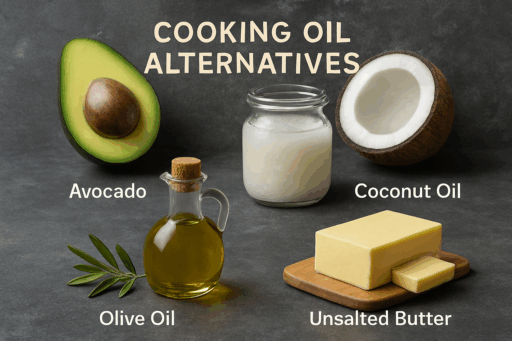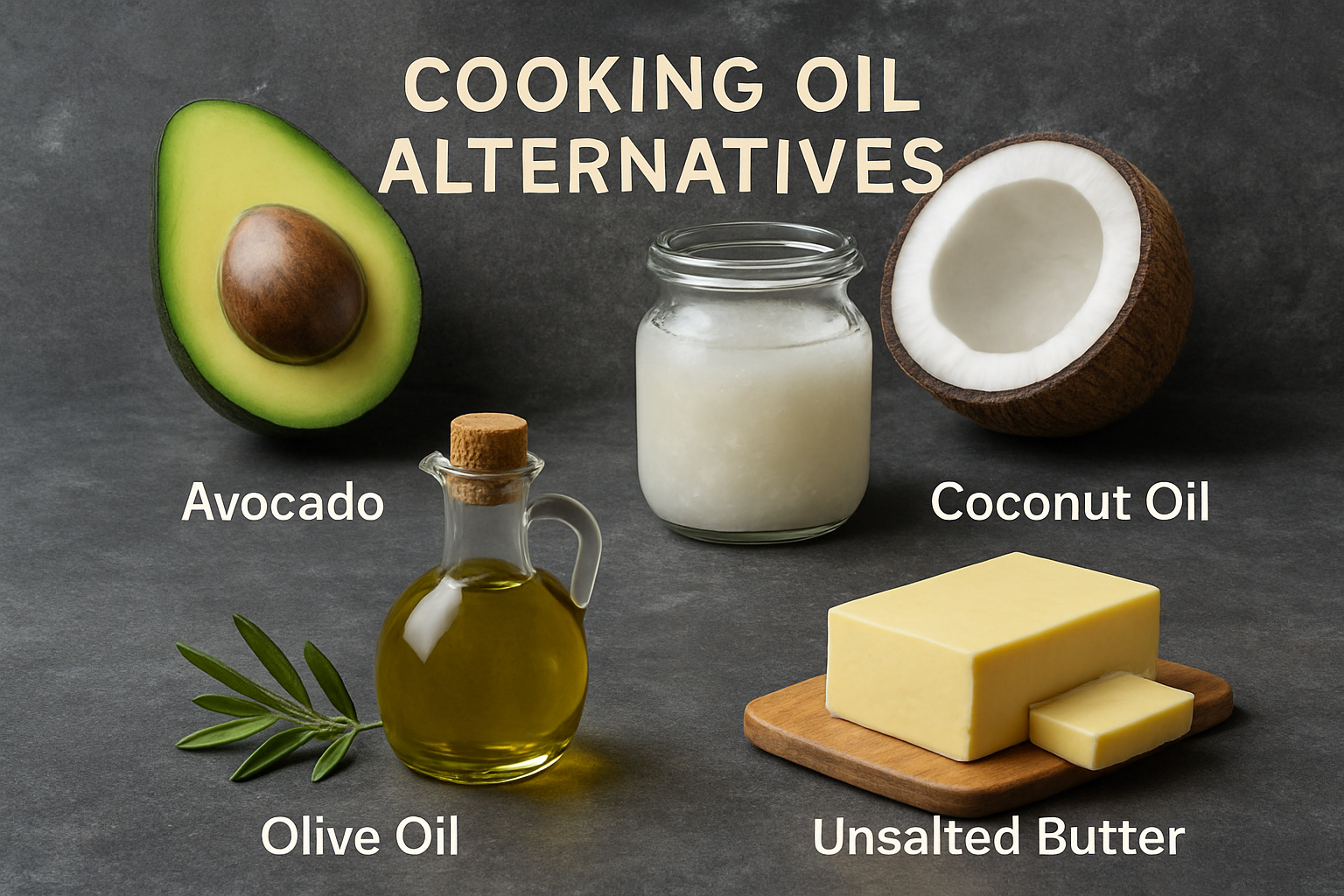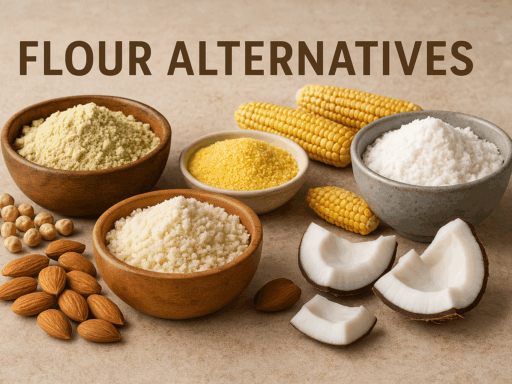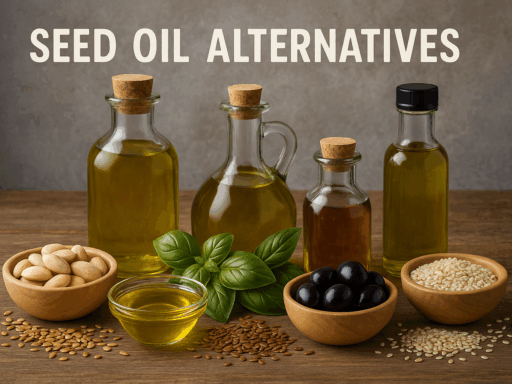Seed oils, such as sunflower oil, canola oil, and soybean oil, have long been staples in kitchens around the world. However, as consumers become more health-conscious and aware of the potential negative impacts of highly processed seed oils, the demand for seed oil alternatives is on the rise. These alternatives often provide healthier fats, better nutritional profiles, and a more sustainable option for cooking and baking.
In this article, we’ll explore the top 10 seed oil alternatives, their health benefits, sustainability, applications, and challenges. Whether you’re looking to reduce inflammation, improve heart health, or simply make a more sustainable choice, there are plenty of alternatives to traditional oils that provide excellent flavor and performance in the kitchen.
Why Consider Seed Oil Alternatives?
Many of the common seed oils used today, such as sunflower oil, soybean oil, and canola oil, are high in omega-6 fatty acids, which can contribute to inflammation and other chronic health issues when consumed in excess. While omega-6 fatty acids are essential for health, the modern diet tends to be disproportionately high in these fats compared to omega-3s, leading to an imbalance that has been linked to various diseases.
In addition to their potential health risks, conventional seed oils are often highly processed and refined, stripping away beneficial nutrients and antioxidants. This makes them less healthy than alternatives that are less processed and richer in healthy fats.
Seed oil alternatives can provide better nutritional benefits, offering higher amounts of healthy monounsaturated and omega-3 fats, and can help reduce the environmental impact of food production.
Top 10 Seed Oil Alternatives and Their Benefits

1. Olive Oil
Olive oil is one of the most widely recognized and healthiest cooking oils available. It’s made by pressing the fruit of the olive tree, and extra virgin olive oil (EVOO) is the least processed, offering the highest level of antioxidants.
- Applications: Olive oil is ideal for sautéing, grilling, roasting, and making salad dressings. It’s also used for drizzling over dishes and in Mediterranean-inspired recipes.
- Health Benefits: Olive oil is rich in monounsaturated fats, which promote heart health by lowering bad cholesterol levels. It is also packed with antioxidants, such as vitamin E and polyphenols, which help reduce inflammation and protect against oxidative stress.
Sustainability:
- Olive trees are drought-resistant, and olive oil production is relatively low in greenhouse gas emissions compared to other oil crops.
Challenges:
- Smoke Point: Olive oil, especially extra virgin olive oil, has a lower smoke point (around 375°F/190°C) compared to seed oils, so it is less suitable for high-heat frying or deep-frying.
- Price: High-quality olive oil, particularly extra virgin olive oil, can be expensive.
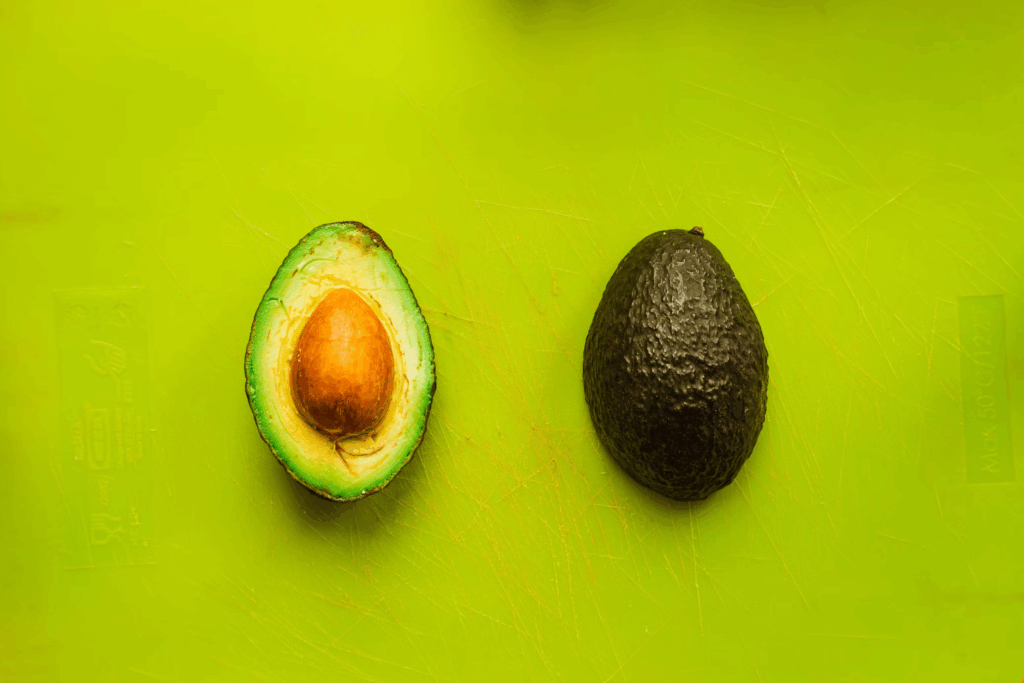
2. Avocado Oil
Avocado oil is made by pressing the flesh of ripe avocados, and it is known for its mild flavor, versatility, and high smoke point, making it an excellent choice for high-heat cooking.
- Applications: Avocado oil is great for frying, grilling, sautéing, and baking. It can also be used in salad dressings and drizzled over roasted vegetables.
- Health Benefits: Avocado oil is rich in monounsaturated fats, which help reduce bad cholesterol levels and improve heart health. It also contains vitamin E and antioxidants, which promote skin health and reduce inflammation.
Sustainability:
- While avocado farming can be resource-intensive, particularly in water-scarce regions, avocado trees are relatively resilient to climate change and require less water than other oil crops.
Challenges:
- Cost: Avocado oil tends to be more expensive than other cooking oils due to the labor-intensive harvesting process.
- Flavor: While mild, avocado oil’s taste may not suit all types of cuisine, particularly in more delicate or neutral-flavored dishes.

3. Coconut Oil
Coconut oil is a tropical oil made from the meat of mature coconuts. It’s solid at room temperature and has a rich, creamy texture. While it is high in saturated fats, it is made up of medium-chain triglycerides (MCTs), which have been shown to provide various health benefits.
- Applications: Coconut oil is perfect for high-heat cooking, baking, and frying. It’s also used in vegan recipes as a substitute for butter.
- Health Benefits: Coconut oil is rich in MCTs, which may help with weight management and provide an energy boost. It is also known for its antimicrobial properties and can support gut health and immunity.
Sustainability:
- Coconut oil is produced from coconut trees, which require minimal water and can thrive in tropical climates. However, concerns have been raised about the environmental impact of large-scale coconut farming, particularly deforestation in some regions.
Challenges:
- Saturated Fat Content: Coconut oil is high in saturated fat, which has raised concerns about its impact on heart health. It is best consumed in moderation.
- Flavor: Coconut oil has a distinct coconut flavor, which may not be suitable for all dishes, especially those where a neutral oil is preferred.
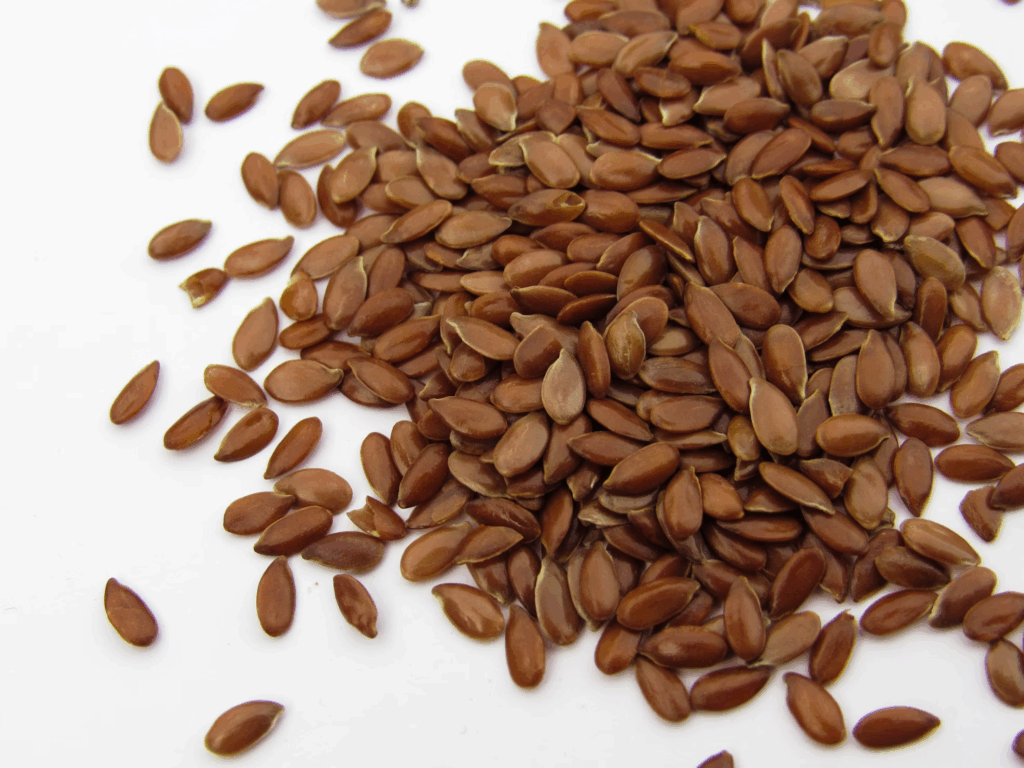
4. Flaxseed Oil
Flaxseed oil is made from the seeds of the flax plant, and it is known for being one of the best plant-based sources of omega-3 fatty acids, specifically alpha-linolenic acid (ALA).
- Applications: Flaxseed oil is best used in cold dishes like salad dressings, smoothies, or drizzled over cooked vegetables. It is not recommended for high-heat cooking due to its low smoke point.
- Health Benefits: Flaxseed oil is rich in omega-3s, which are known to reduce inflammation, improve heart health, and support brain function. It is also a good source of lignans, which have antioxidant properties.
Sustainability:
- Flaxseed is a low-impact crop that requires minimal water and pesticides. It is grown in temperate regions and is more environmentally friendly than some other oil crops.
Challenges:
- Low Smoke Point: Flaxseed oil has a low smoke point, so it’s unsuitable for cooking at high temperatures. It’s best used in raw applications.
- Taste: The nutty flavor of flaxseed oil may not appeal to everyone, especially in certain dishes where a neutral flavor is needed.

5. Hemp Seed Oil
Hemp seed oil is derived from the seeds of the hemp plant. Unlike CBD oil, which is extracted from the flowers, hemp seed oil is rich in essential fatty acids, vitamins, and antioxidants.
- Applications: Hemp seed oil is often used in salad dressings, smoothies, or drizzled over cooked dishes. It can also be used in skincare products due to its nourishing properties.
- Health Benefits: Hemp seed oil is an excellent source of omega-3 and omega-6 fatty acids in a ratio that promotes optimal heart and brain health. It is also rich in gamma-linolenic acid (GLA), which has anti-inflammatory properties.
Sustainability:
- Hemp is a highly sustainable crop because it requires minimal water and pesticides. It is also a fast-growing plant that helps improve soil health.
Challenges:
- Taste: The earthy, nutty flavor of hemp seed oil may not be suitable for all dishes, particularly if a neutral-tasting oil is desired.
- Availability: While hemp seed oil is growing in popularity, it may not be as widely available in all regions or stores as other oils like olive oil or coconut oil.
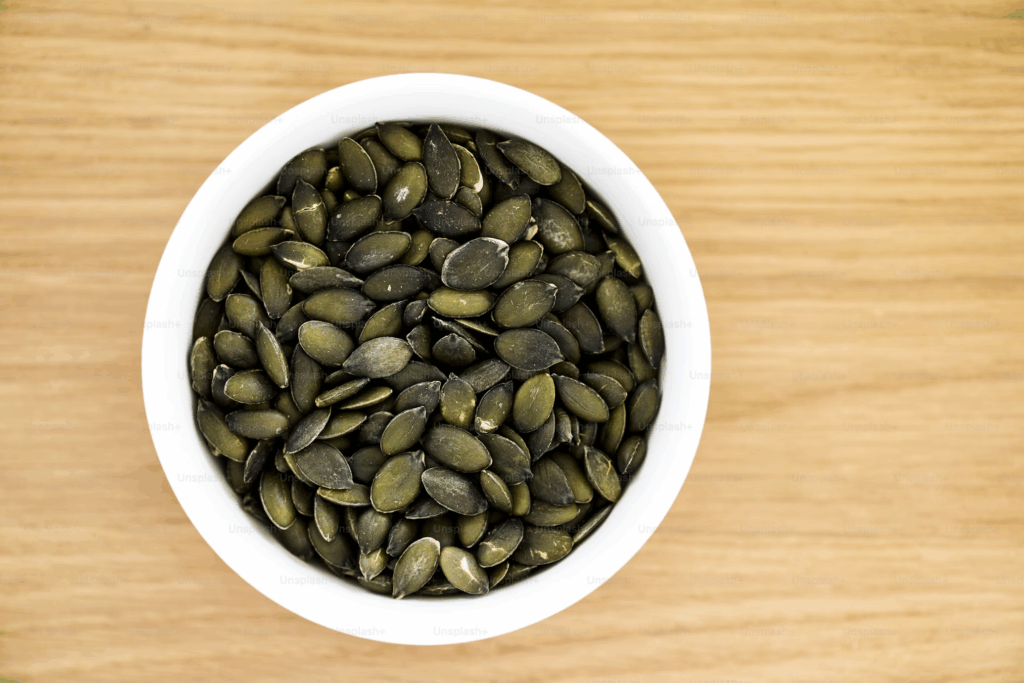
6. Pumpkin Seed Oil
Pumpkin seed oil is made by cold-pressing the seeds of pumpkins. It is dark, rich, and has a distinct nutty flavor.
- Applications: Pumpkin seed oil is often used in salad dressings, drizzled over soups, or mixed into smoothies. It can also be used in baking for a unique twist on traditional recipes.
- Health Benefits: Pumpkin seed oil is high in antioxidants, such as vitamin E and zinc, and contains healthy fats that support heart health. It’s also known to improve prostate health in men due to its high zinc content.
Sustainability:
- Pumpkin farming is resource-efficient, requiring less water compared to other oil crops. It is also grown in a variety of climates, making it widely available.
Challenges:
- Flavor: Pumpkin seed oil has a strong, nutty flavor that may not be suitable for all dishes.
- Cost: It can be more expensive than other oils due to the cold-pressing process and the need for a large quantity of seeds to produce the oil.

7. Grapeseed Oil
Grapeseed oil is made from the seeds of grapes, often byproducts of the winemaking process. It has a mild flavor and is commonly used in high-heat cooking.
- Applications: Grapeseed oil is ideal for frying, sautéing, and baking. It can also be used in salad dressings and marinades.
- Health Benefits: Grapeseed oil is high in polyunsaturated fats, including omega-6 fatty acids, and vitamin E, which help to promote healthy skin and improve heart health.
Sustainability:
- Since grapeseed oil is often a byproduct of the wine industry, it makes good use of agricultural waste. However, large-scale production can still have environmental impacts depending on farming practices.
Challenges:
- High Omega-6 Content: Grapeseed oil is high in omega-6 fatty acids, which can contribute to inflammation if consumed excessively.
- Processing: Grapeseed oil is often refined, which reduces its antioxidant content.

8. Walnut Oil
Walnut oil is made by pressing walnuts and is rich in omega-3 fatty acids, making it an excellent choice for health-conscious individuals.
- Applications: Walnut oil is best used in salad dressings, dips, or as a finishing oil on dishes like roasted vegetables. It can also be drizzled on pasta or added to baked goods for extra flavor.
- Health Benefits: Walnut oil is an excellent source of omega-3s, which support brain and heart health. It also contains antioxidants that reduce inflammation and support overall wellness.
Sustainability:
- Walnuts require water and land but are generally considered a more sustainable crop compared to animal-based oils.
Challenges:
- Cost: Walnut oil can be more expensive than other oils, particularly for high-quality, cold-pressed varieties.
- Flavor: The distinct, nutty flavor of walnut oil may not be suitable for all types of cuisine.

9. Sesame Oil
Sesame oil is made from pressed sesame seeds and is widely used in Asian cuisine for its distinctive flavor.
- Applications: Sesame oil is perfect for stir-frying, sautéing, or drizzling over salads. It’s often used in Asian dishes like stir-fries, sauces, and dressings.
- Health Benefits: Sesame oil is rich in antioxidants, such as sesamol and sesamin, which help reduce inflammation and support heart health. It also contains healthy fats, including both monounsaturated and polyunsaturated fats.
Sustainability:
- Sesame is a drought-resistant crop and can be grown in areas with limited water resources, making it a more sustainable oil option.
Challenges:
- Taste: Sesame oil has a strong, distinctive flavor that may not be suitable for all dishes.
- Cost: It can be more expensive than traditional oils like vegetable oil.

10. Chia Seed Oil
Chia seed oil is extracted from the seeds of the chia plant, known for its high omega-3 content and numerous health benefits.
- Applications: Chia seed oil is best used in salad dressings, smoothies, or as a finishing oil on cooked dishes. It is also used in skincare products due to its hydrating properties.
- Health Benefits: Chia seed oil is an excellent source of ALA (alpha-linolenic acid), an omega-3 fatty acid that supports heart and brain health. It also contains antioxidants and anti-inflammatory compounds.
Sustainability:
- Chia is a low-impact crop that requires minimal water and pesticides, making it a more environmentally friendly option than some other oil crops.
Challenges:
- Low Smoke Point: Like flaxseed oil, chia seed oil has a low smoke point and is not ideal for high-heat cooking.
- Taste: The flavor may not be appealing in all dishes, particularly if a neutral-tasting oil is desired.
Sustainability of Seed Oil Alternatives
When compared to traditional seed oils like sunflower or palm oil, many of the seed oil alternatives listed above offer a more sustainable choice. Plant-based oils such as olive oil, avocado oil, and hemp seed oil are typically produced with fewer resources, and they often require less water and pesticides than their counterparts. Additionally, organic and fair-trade certifications help reduce environmental harm associated with oil production.
Challenges of Adopting Seed Oil Alternatives
While seed oil alternatives provide numerous health and environmental benefits, there are challenges to their widespread adoption:
- Taste Preferences: Some people may find the flavors of oils like walnut oil or hemp seed oil too strong for certain dishes.
- Cost: Many alternatives, particularly avocado oil and walnut oil, can be more expensive than conventional seed oils.
- Smoke Point: Oils like flaxseed oil and chia seed oil have low smoke points, making them unsuitable for high-heat cooking methods like deep-frying.
Switching to seed oil alternatives offers a fantastic opportunity to improve health, reduce inflammation, and make more sustainable choices in the kitchen. From olive oil and avocado oil to flaxseed oil and hemp seed oil, there are plenty of healthy options to choose from, each offering unique benefits for heart health, cognitive function, and overall wellness.
While there are challenges such as taste preferences, cost, and smoke points, the growing availability and demand for these healthier oils are pushing the market to improve accessibility, affordability, and taste. By making the switch to seed oil alternatives, you can improve both your diet and your environmental footprint, all while enjoying the benefits of better fats.

